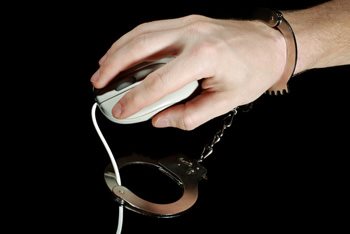Beware of Patent Infringement
Patent infringement refers to the act of violating existing and applied laws and regulations regarding patent protection. This consist committing an act against imposed statutes protecting a patented invention or committing an act in regards to a particular patented invention without the proper authority or permission by the rightful owner patent.
Patent Infringement in the United States
The extent and definition of what constitutes patent infringement will vary from jurisdiction to jurisdiction and from country to country. In the United States, patent infringement is defined as the making, using, selling, or distributing a patent invention without the proper authorization or permission from the inventor or patent holder. However, patent infringement regarding inventions registered in the United States will only apply within the country’s borders and territories. Importation of a patented into the United States without authorization can also be construed to be patent infringement.
Consequences of Patent Infringement
Patent infringement is an act that is punishable by applicable laws in the United States. In the case that patent protection rights are infringed, the owner or holder of the patent may bring about a lawsuit against the perpetrator seeking relief in the proper jurisdictional court.

Upon the matter reaching the courts, the patent holder can also ask for an injunction, which would then for further infringement of the patent to take place. This means that the accused would be given a court order to discontinue the act that infringes upon patent rights.
Another action would be for the patent owner to ask for damages compensation that was caused as result of the patent infringement. In the case that the United States Government is being accused of patent infringement, damages may be sought in the United States Court of Federal Claims. The US Government has the right to use patented inventions without proper authorization, though the patent holder is entitled to proper compensation for such use of the invention by the Government.
Patent infringement will usually be determined based on the claims made in the patent application or registration. This is why the claims section of a patent application is deemed to be crucially important. The courts would then analyze the content of the claims in regard to the patent. If the accused’s actions do not coincide explicitly with what is contained within the claim, then there may be no grounds for patent infringement legal action.
Patent Examination Process and Patent Infringement
Even though the United States Patent and Trademark Office is responsible for the examination and eventual registration of patents, it does not have any actual jurisdiction in regards to situations involving patent infringement.
Patent infringement lawsuits are often based on the claims made in patent applications, which are examined by the USPTO. However, the examination process does not make any determinations if such claims are infringing upon other patented inventions. This often times happens when a patent application is filed for the improvement on an existing invention.
The examination process will prove to only determine that the improvement is new and novel, but not necessarily that it infringes upon another patent. Therefore, it is possible for an invention to be patented, yet still be within the grounds of patent infringement.